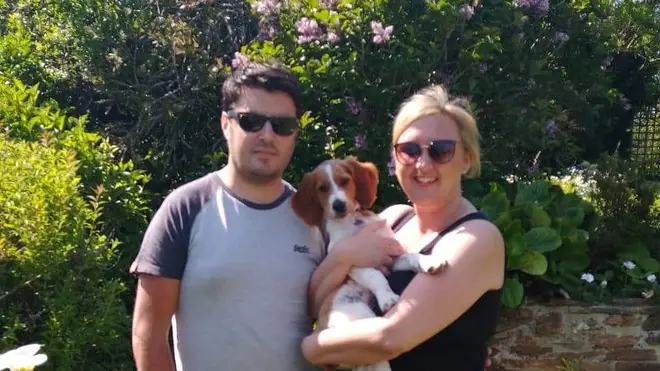
Tom Swarbrick 4pm - 6pm
15 June 2021, 17:02

Vets have issued a warning over a deadly and highly infectious virus in dogs following a rise in UK cases.
In the first five months of 2021, 60 clinics around the country reported 89 cases of parvovirus - an 82 per cent increase on the previous year.
The virus is known to attack the gastrointestinal tract and immune system in dogs.
UK vet network My Family Vets said the increase was down to a combination of the "lockdown puppy boom" and owners not keeping up with vaccinations.
Dog owner Stephanie Wilkins nearly lost her cocker spaniel puppy - Cooper - after he contracted the virus just a day after she got him.
"We thought it was just the new surroundings," she said.
"But he became really quiet and wouldn't eat and when he started having bad diarrhoea, we knew we had to get him help.
"He was so ill that we were told he probably wouldn't survive, which was horrendous.
Read more: Coronavirus lab leak theory discussed by G7 leaders, WHO boss confirms
Read more: 'Stop forcing your lifestyle on animals': Vegan caller defends fast food blockade

"The vets said they would try everything they could if we wanted, and we just felt we had to give him a chance.
"When I went in to see him, he looked awful, as if he just wanted to die and I didn't want him to suffer. But every time he got really bad and it looked as if every hour might be his last, he would stabilise again."
Cooper survived the intensive treatment, despite parvovirus having an 80 per cent fatality rate in dogs.
Stephanie, a hospital worker, is now backing vets' calls to ensure owners are vaccinating their pets and seeking help straight away if they see their puppy becoming unwell.
She said: "I think with everything we've had going on, we missed some warning signs.
"You've got to know everything is genuine and definitely make sure you get all of the vaccinations you need."
The People's Dispensary for Sick Animals (PDSA) clinics see around 1,500 cases of parvo every year.
Early treatment can include intravenous drips to treat shock and combat dehydration and anti-nausea medication.